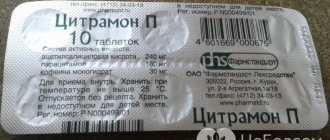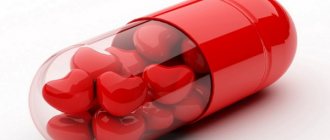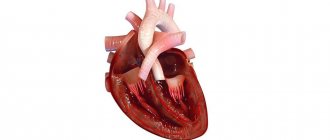When you watch old films, you often see young ladies with curls in their hair and in beautiful fluffy dresses fainting at the sight of a handsome prince.
They deliberately pretended to be unconscious in order to achieve a goal, attract attention, or save a life.
If our ancestors did this, why can’t we use this technique today? This can help you avoid difficulties and help you find yourself in the arms of a loved one.
There are situations when the ability to plausibly faint will save a life.
How to faint on purpose and safely: at home or at school
You should feign fainting very carefully. A fall risks hitting you against a hard object.
The consequences of the prank can be the most unexpected:
- Head injury.
- Fracture of an arm or leg.
- Dislocation or sprain.
- Trauma to the cervical vertebrae.
- Concussion.
- Hematomas on the head, which can develop into a serious disease requiring surgery.
- A hip injury that will close the door for you in some sports sections, competitions and the dance floor.
- Knocked out tooth.
- Bitten tongue.
- If you hit your head while falling, you could lose your life. There are several points on the head, a blow to which will lead to death. Remember this!
This is all very serious. Concussions and head injuries are dangerous to life and health. The skill can be practiced. You will learn to accurately calculate your fall, avoiding injury.
5 rules for fainting for malingerers:
The legs should move away from the feet to the side. The knees land first, then the butt, then the torso.
If you start landing from the head, you will have to spend a long time collecting teeth and treating the concussion. Traumatic brain injuries are dangerous. Be sure to rehearse in front of a mirror; your body will react automatically if you conduct an experiment on people without preparation.
Drug treatment
To choose the right medication for the treatment of paresthesia, the doctor must take into account the causes of this symptom and the patient’s health condition. If the disease is caused by a neurological factor, the use of the following drugs is most often indicated:
- Nurofen, Ketonal, Diclovit, Ketorol;
- Mydocalm injections, which prevent spasms of the neck muscles;
- products containing B vitamins - Milgamma injections, vitamin complex in Neuromultivit tablets.
If the cause of the syndrome is vascular disease, the following drugs are prescribed to the patient to eliminate the pathological condition:
- vasodilators: Corinfar, Cordafen, Nifedipine;
- dilating coronary arteries: Amlodipine, Norvasc;
- for better blood oxygen saturation: Trental, Vazonit, Trenpental.
For numbness in the fingers of the upper extremities, ointments with the following names are indicated:
- Fastum gel;
- Diclofenac;
- Voltaren.
How to lose consciousness for a few minutes
Real loss of consciousness is caused by simple manipulations. The downside is harm and health hazard.
It will not be possible to accurately adjust the time of fall. You can create conditions for the body to weaken.
People in good health will have to use one of the above techniques in addition:
- Starvation.
- Depressant.
- Dehydration.
- Severe stress.
- Clothing that tightly pinches the chest and abdomen, preventing normal breathing.
- Hit to the head.
These methods are effective, but harmful. A blow to the head is mentioned because it can cause loss of consciousness. To use it is to risk your life.
The blow can cause brain bleeding. The person will forever remain disabled, immobilized, blind, or die. One blow to a sensitive spot and death is guaranteed.
Fasting can weaken the body, but along with a faint state, be prepared for stomach problems: ulcers, gastritis, indigestion, colitis.
Such experiments leave consequences.
Tight clothing is an option that works on the principle of breathing manipulation. Lack of oxygen will contribute to fainting. Make sure there are people nearby who will provide first aid.
Causes of discomfort
Paresthesia (numbness) can occur during sleep, working at a computer, driving a car, and also during pregnancy. Such cases are not uncommon and can be caused by objective reasons, by eliminating which you can get rid of the symptoms.
Numbness during sleep can be caused by a high or low pillow, as a result of which the neck muscles are tense while resting at night. You need to choose the most suitable pillow height.
A tingling sensation in a limb that does not go away for a long time may be caused by the presence of a blood clot in the vessels. To eliminate it, you must seek medical help.
Concentrated and intense work at a computer for a long time can cause numbness in the limbs, accompanied by pain in the joints and tingling of the fingers. To prevent the occurrence of such a symptom, it is necessary to do exercises, move, and stretch your fingers.
Paresthesia of the fingers is a common occurrence during pregnancy. This occurs as a result of metabolic disorders in the body. Doctors recommend eating foods rich in iron (liver, meat). After childbirth, these symptoms go away on their own.
But numbness and tingling in the hands often appear against the background of various diseases, including chronic ones.
There is no such disease as numbness. This is a symptom that indicates some other disease that gives signals in the form of tingling and loss of sensation in the limb.
The main cause of such symptoms may be an incorrect lifestyle:
- alcohol abuse;
- smoking;
- drug use;
- inadequate sleep (less than 5 hours for a long time);
- Unhealthy diet (fried, fatty, spicy, salty foods, fast food, carbonated drinks).
The listed negative factors should be avoided to normalize the body’s condition. If symptoms recur, you should consult a specialized doctor.
With numbness of the upper extremities, the following sensations may appear:
- decreased sensitivity of the skin;
- specific tingling sensation that causes discomfort;
- the appearance of “goosebumps” under the skin;
- feeling of hand immobility.
Smoking has a destructive effect on the walls of blood vessels, making it difficult for blood to pass through them. As a result, blood flows poorly to the extremities. Disruption of its circulation over a long period of time can cause serious consequences, such as gangrene and amputation of the arm. Quitting a bad habit will help eliminate the problem of numbness.
Drinking alcohol in large quantities has a negative effect on peripheral nerves. Initially, this symptom manifests itself in the form of tingling, and over time it can progress to a stage when the ability to control movements and hold heavy objects in the hands is lost.
An improper diet, leading to obesity, can be one of the reasons for the loss of sensitivity in the hands. Improper metabolism leads to impaired blood flow. You need to create a suitable diet or seek help from a nutritionist.
A sedentary lifestyle and lack of moderate physical activity can lead to paresthesia. You should move actively, perform sets of exercises, and spend a lot of time in the fresh air to prevent numbness of the limbs.
Among the diseases that cause tingling and lack of sensitivity in the hands are the following:
- osteochondrosis;
- severe headaches (migraines);
- vegetative-vascular dystonia;
- carpal tunnel syndrome;
- diabetes;
- spinal hernia;
- multiple sclerosis;
- atherosclerosis of the upper extremities;
- ischemia;
- stroke;
- hypertension;
- a brain tumor.
Prevention of drug poisoning
- store medications in a special place out of the reach of children;
- Tablet forms cannot be stored in bulk, without packaging. Carefully analyze expiration dates and storage methods of medications. This is especially true for solutions and ampoules;
- keep the instructions - all possible side effects are described there. If you feel any of the above, you can consult your doctor and reduce the dose or stop the drug altogether;
- rich food and alcohol compete with most medications, or rather, they get in line. Follow the recommended diet and other instructions;
- label packages, jars or blisters if the drugs are intended for elderly people with visual impairments;
- and, of course, the combination of any medications with excessive alcohol consumption is unacceptable.
Is an overdose of Glycine dangerous?
If you overdo it with the drug and drink, for example, 20, 50 or even 100 tablets at one time, then unpleasant consequences are possible. However, an overdose of this medicine is unlikely to lead to death: aminoacetic acid is not that toxic.
Adverse reactions caused by violation of the instructions for taking Glycine will be discussed below.
What can you drink with it?
There are several opinions regarding the question: is it possible to take tablets with milk?
In some cases, this may be unsafe, so doctors do not recommend milk and dairy products for taking medications.
It is strictly forbidden to use carbonated and mineral water to wash down medications.
By understanding how to take pills and following these rules, you will protect yourself from the medicine getting stuck in your throat.
Previously, scientists talked about how tablets can replace syringes.
Source: www.medikforum.ru
Efficiency of the method
The most common treatments for hand paresthesia are:
- physiotherapeutic procedures;
- magnetic vacuum acupuncture;
- acupuncture;
- massage;
- phonophoresis.
To receive the necessary medical care, you should contact a specialized doctor and undergo an examination to make a diagnosis, on the basis of which appropriate treatment will be prescribed.
Treatment with folk remedies is effective. To get rid of goosebumps and tingling hands, you should eat the following foods: wheat, beans, parsley, honey, celery, fish, cheese, milk, eggs, etc.
During sedentary work, you should take breaks for rest and exercise. During heavy physical work, periodic muscle relaxation is also necessary.
Therapy methods such as contrast showers and massage treatments have a beneficial effect on the body, relieving unpleasant symptoms.
Maintaining a healthy lifestyle, avoiding excessive drinking and smoking will be a preventative measure for hand paresthesia.
Independent activities
The nature of first aid measures is determined by the presence or absence of respiratory problems in the patient, as well as whether the foreign body is actually still in the throat. All stuck tablets are dangerous, but if, if they get into the digestive tract, the patient has time to try to help himself, then a foreign body in the larynx requires emergency care.
Foreign body of the pharynx and esophagus
What to do if the tablet gets stuck? Applicable:
- drinking liquids (water, tea, etc.);
- drinking dairy products (yogurt, kefir).
The liquid may help push the tablet down into the stomach. Do not use sparkling water or alcohol. Bubbles irritate the mucous membrane and can aggravate the pain syndrome, and alcoholic drinks are usually incompatible with drug therapy. The tablet will dissolve in the stomach, but the patient runs the risk of intoxication.
If it is possible to swallow not only liquid, but also food, it is permissible to chew a piece of bread or boiled potato - it should not be very large. You should not quickly swallow large pieces of food, especially if they are dry and crumbly.
The presence of a foreign body often provokes coughing, and sometimes the patient experiences pain. If the tablet is not deep, you can try to cough it up - gently, without unnecessary effort, bending slightly. If successful, it will quickly fall out of your mouth.
Foreign body of the larynx
If the tablet ends up in the larynx, complete or incomplete airway obstruction may develop. When a person can breathe, you need to:
- Gradually drawing in air, take a deep breath, while straightening up (unbending your torso).
- Exhale sharply and intensely while bending forward.
- Try to clear your throat.
Patting on the back is only effective after the person bends over. If it stands straight, any mechanical impact, especially strong, will only push the tablet deeper, but will not help remove it. In addition, patting does not always help and is not recommended as a first aid measure.
If a tablet gets stuck, a special technique for clearing the airways - the Heimlich maneuver - can help.
If the respiratory tract is completely blocked (the victim cannot speak, clutches his throat in panic, cannot take a breath), it is necessary to perform the Heimlich maneuver. To do this, the following rules are observed:
- the person providing assistance is positioned behind the victim’s back and sits down slightly;
- the victim bends slightly forward;
- the rescuer wraps his arms around him, placing a clenched fist on the area between the navel and costal arches;
- the palm of the other hand covers the fist;
- presses his fist upward and towards himself;
- At the same time, the rescuer’s arms sharply bend at the elbows.
The Heimlich maneuver can also be performed independently. There are two options:
- A hand clenched into a fist is placed between the navel and costal arches, in the epigastrium. At the same time, the thumb rests on the stomach, and quick and sharp upward pressure (pushes) are made with the fist.
- The victim leans on a hard, tall object (chair, table), which stands firmly on the floor. A push is performed in the stomach in an upward direction, repeated several times.
Even if the foreign body is successfully removed, you should consult a doctor. This is especially important if the tablet gets into the larynx, since there is a risk of swelling and a re-increase in respiratory problems.
Foreign object in the esophagus
What to do if the pill gets stuck
?
You urgently need to drink any kind of liquid (water, juice, tea);
The liquid is a solvent and will be able to soften and push the pill into the stomach.
In such cases, you should not drink sparkling water or alcohol. Bubbles irritate the mucous membrane and only worsen the patient’s condition, and alcoholic drinks, when mixed with medications, can cause an acute allergic reaction.
In addition, when after drinking alcohol, the tablet dissolves in the stomach
, the patient is at risk of intoxication.
If you don’t have a suitable liquid at hand, you can swallow the food, chewing it is acceptable:
•a piece of bread;
•small boiled potato.
There is no need to swallow giant pieces of food, especially those that crumble and, due to dryness, cause additional injuries to the larynx. The presence of a foreign body often causes coughing, and at times the person experiences pain. If the pill does not feel deep, you should try to cough it up. You need to cough carefully, without straining, otherwise, instead of the desired relief, you can harm yourself.
Small children can be picked up, turned over and shaken while patting them on the back. Patting should be done when the patient exhales.
Drugs for intestinal infections
Diarrhea is not a primary disease, but only a manifestation of a general nosological form. After completing treatment for 2 weeks, it is not always possible to eliminate diarrhea. According to medical canons, in such a situation antibacterial agents should be prescribed, since long-term gastroenteritis is caused by intestinal infection: pseudomembranous colitis, dysentery, paratyphoid fever, typhus, dysbacteriosis. Antimicrobial therapy is indicated for secondary diseases (syphilis, herpes, chlamydial prostatitis) against the background of food poisoning.
Diarrhea provokes exacerbation of pathologies of the gastrointestinal tract (Crohn's, ulcerative colitis). For these nosological forms, the following medications are prescribed:
- 5-aminosalicylic acid products (“Mercaptopurine”, “Mesalazine”, “Sulfasalazine”).
- Glucocorticoids - Budesonide, Prednisolone.
- Cytostatics (“Methotrexate”, “Azathioprine”).
- Necrosis factor blockers (Infliximab).
- Diarrhea with accelerated growth of hormonally active tumors (carcinoid syndrome, gastrinoma) is treated with somatostatin-octreotide (50-250 mg three times a day), a combination of interferon with octreotide.
Application of a dropper
The system allows you to introduce medications, salts, and water at the required speed directly into the bloodstream. The procedure must be carried out by a specialist (doctor or nurse), since it is he who will accurately select the concentration of the active substance and get the needle into the vein. The goals of treatment with this method are:
- replenishment of circulating blood volume;
- stabilization of the functional activity of organs;
- increasing the rate of elimination of toxins;
- prevention of thrombosis.
They help well with any type of intoxication, be it a low-quality product or an antistatic agent for laundry. In case of poisoning, it is customary to administer the following medications intravenously:
- glucose solution;
- Hemodez;
- Poliglyukin;
- Trisol;
- Reogluman;
- Ringer's solution.
Medicines for poisoning in children
The following categories of medications are used:
- Intestinal antiseptics (Enterosediv, Intetrix, Intestopan). Among modern antibiotics, it is better for children to use Nifuroxazide, a derivative of nitrofurans. The drug acts inside the intestinal cavity without destroying saprophytic bacteria (bifidobacteria, lactobacilli). Effective against pathogenic, toxic E. coli, Shigella, Salmonella, Yersinia, Vibrio cholerae. The representative of the group is Furazolidone. Clinical studies have proven a good therapeutic effect for paratyphoid fever, typhoid fever, and dysentery.
- Antibacterial drugs (penicillins, beta-lactamases, cephalosporins, monobactams, carbapenems, aminoglycosides, synthetic sulfonamides).
In most patients, intestinal intoxication is caused by gram-negative microbes. Medicines that destroy this group of bacteria:
- sulfonamides;
- nitrofurans;
- fluoroquinolones;
- quinolones;
- polymyxins;
- chloramphenicol;
- tetracyclines;
- aminoglycosides;
- carbapenems;
- monobactams;
- cephalosporins;
- aminopenicillins.
The opinion of modern scientists and doctors has changed practical approaches to the treatment of intestinal toxic infections. Uncomplicated forms of nonspecific infection do not require antibiotics. Practical studies prove the effectiveness of pathogenetic treatment for intestinal poisoning in children. Only in case of generalized salmonellosis is the use of antibacterial agents irrational. Medicines of the quinolone group are used in the treatment of intestinal infections. Gradually they are replacing classical antibiotics. There are 2 types:
- Pipemidic, oxolinic, nalidixic acid - first generation.
- Lomefloxacin, Ciprofloxacin, Pefloxacin, Ofloxacin, Norfloxacin are newer drugs.
Fluoroquinolones are often prescribed to children with intestinal intoxication. These anti-poisoning medications have a wide spectrum of action against gram-positive bacteria, Escherichia, Salmonella, Shigella. Dysbacteriosis is rarely observed when using fluoroquinolones, so products like Ciprofloxacin are highly active with minimal side effects. In case of dangerous degree of intoxication, 500 mg is prescribed twice a day. In severe cases of the disease, the medicine is administered intravenously, 400 mg twice a day.
Symptomatic treatment of intestinal poisoning is to ensure physiological pressure, normalize the volume of circulating blood, maintain breathing, and correct osmotic pressure. During therapy, it is necessary to prevent serious complications: hypovolemic, intoxicating shock, acute renal failure.










